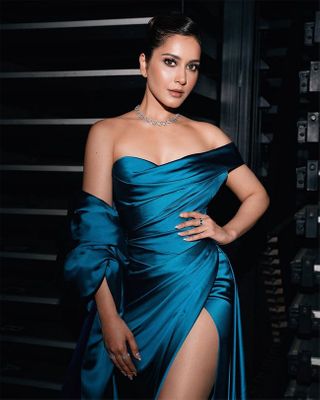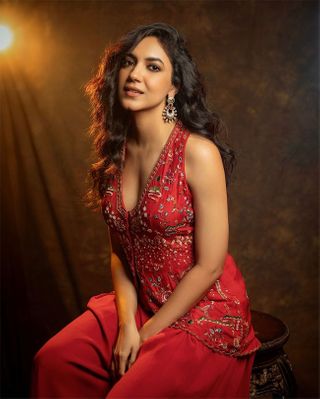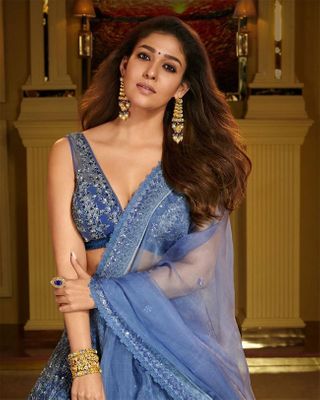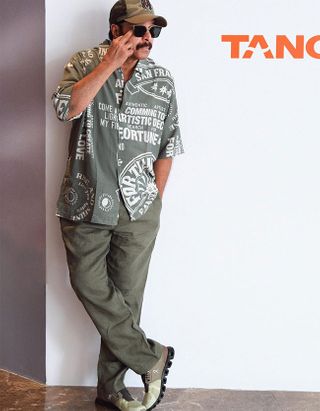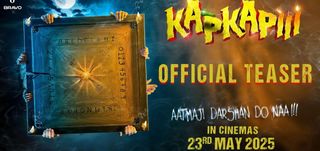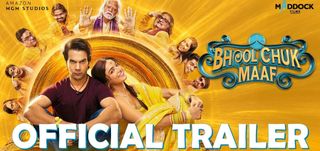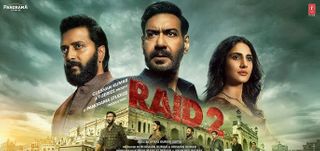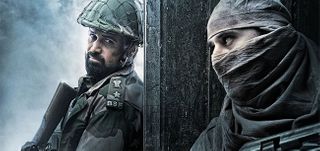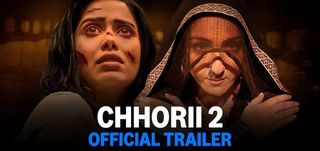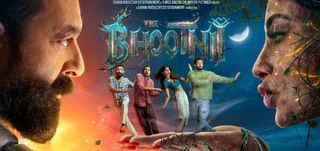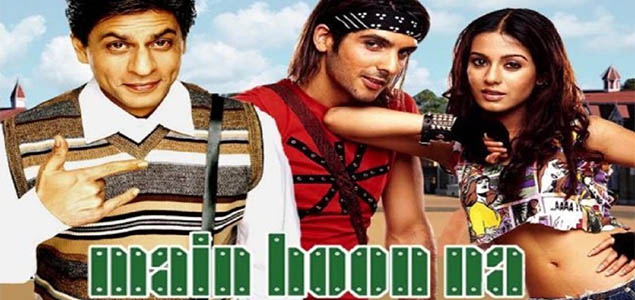
Main Hoon Na Movie Review
Main Hoon Na: Subdued but omnipresent Shah Rukh is as solid and reliable as his role requires him to be
Mar 4, 2004 By IANSHefty hints and wacky whispers harking back to the golden era of mainstream Hindi cinema carpet this delectable piece of pop-art.
And how can you stay grave when Shah Rukh Khan as Ram Prasad Sharma, in his most politically correct role ever, goes back to college to protect his army boss Kabir Bedi's rebellious daughter Amrita Rao?
How can you stay serious as Ram, disguised as an over-age student in scenic St Paul's in Darjeeling, is heckled by the long-haired dude-with-an-attitude Laxman (Zayed Khan)?
The Ram-Laxman parallel from the Ramayana is just one of those things in Farah Khan's debut film that makes you smile indulgently.
Oh, for those days of movie watching when brothers would be daggers- drawn and guns-withdrawn as their mother sobbed in front of her favourite deity.
One things is for sure. The director loves Hindi movies. Rather than be condescending about conventional formulas, she uses them to her advantage.
Playing a straight-faced spillover from "Masoom", Naseeruddin Shah is cast as a man who, on his deathbed tells his illegitimate son Ram about another son, the legitimate one.
Farah Khan enjoys every morsel of the kitsch and even turns it into a kind of impromptu feast of fury, farce and familial values, all coming together in one of the most watchable films from Bollywood in recent times.
Unlike other recent products, "Main Hoon Na" never resorts to double meanings to get us interested. Vulgarity....yes there is. But of a very funny and innocuous variety. Satish Shah as the spit-spraying teacher and Bindu as his buxom colleague provide what in filmy parlance could be called the cheap thrills.
Sushmita Sen is there for the oomph. And how! Taking off from where Simi Garewal left off as the sexy Catholic teacher to Rishi Kapoor in "Mera Naam Joker", Sen in clingy chiffons is a hip-swinging diva full of song and fury signifying sensuality.
Some of the film's most innovative scenes are between smitten student Shah Rukh and his sensational teacher. The sequence in the Staff Room, where Ram bursts into "Ek ladki ko dekha", replete with a bunch of phantom-violinists to egg on the romantic mood, is a beauty.
There are many tooth-and-nail defining moments in the long but seldom lingering narrative. The love for R.D. Burman's music is evident in the composer's recurrent melodies and in Anu Malik's spirited score.
Ranjit Barot's sound design is a prominent measure of the film's technical finesse. Whether it's V. Manikandan's sweepingly specified cinematography or Abbas Tyrewala's tongue-in-cheek banter...the film's technical gloss romances the posh without sacrificing the good old story.
Farah Khan goes for a heady mix of brotherly bonding and political terrorism. While the Shah Rukh-Zayed Khan team gives the film its sentimental theme, the Shah Rukh-Suniel Shetty axis provides the director with a chance to let the macho side of her vision have a field day.
From the first to last frame, Farah Khan is debutante in control. She uses her stars and her ingrained affinity to the cult of stardom to her script's advantage. She tiptoes through our biggest mainstream movies with the glee of a child at a huge toy store. She knows exactly what she wants and gets it from her cast and crew with a deft formula-defining toss of her hair which defies her gender.
The whole sequence on the roads of Darjeeling where Shah Rukh chases the militant (Murli Sharma) on a manual rickshaw isn't just a tribute to the "Chal-Dhanno-aaj-teri-Basanti-ke-izzat-ka-sawaal-hai" sequence in "Sholay", but also incontrovertible evidence of Farah Khan's unrelenting grip over the grammar of commercial Hindi cinema.
The India-Pakistan peace message that crops up intermittently is sparingly projected into the plot. We feel the politicisation of Shah Rukh in digestible measures.
Subdued but omnipresent Shah Rukh is as solid and reliable as his role requires him to be.






